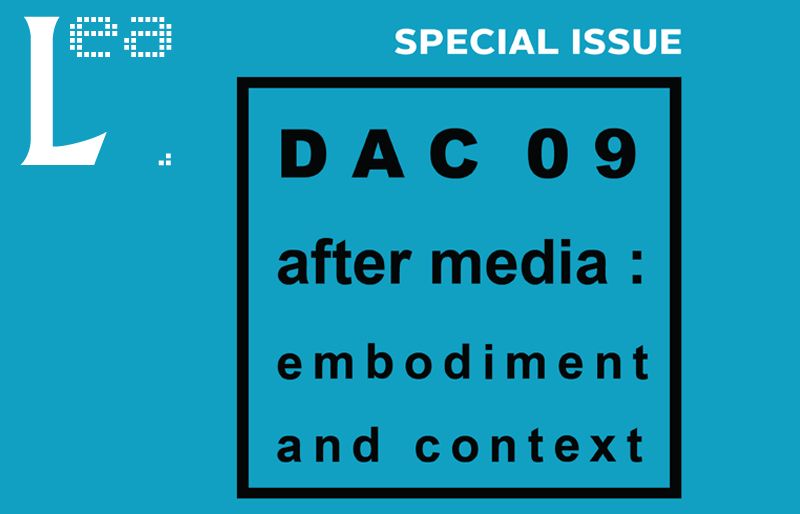
LEA Volume 17 Issue 2
Senior Editors for this volume: Lanfranco Aceti and Simon Penny
ISBN: 978-1906897-16-1
ISSN: 1071-4391
Reference: Jichen Zhu and D. Fox Harrell, “Narrating System Intentionality: Copycat and the Artificial Intelligence Hermeneutic Network,” eds. Lanfranco Aceti and Simon Penny, Leonardo Electronic Almanac (DAC09: After Media: Embodiment and Context) 17, no. 2 (2012): 160-171.
Narrating System Intentionality: Copycat and the Artificial Intelligence Hermeneutic Network
by Jichen Zhu and Fox Harrell
Computer systems designed explicitly to exhibit human-like intentionality (seeming to be about and directed toward the world) represent a phenomenon of increasing cultural importance. In the discourse about artificial intelligence (AI) systems, system intentionality is often seen as a technical property of a program, resulting from its underlying algorithms and knowledge engineering. By contrast, this article proposes a humanistic framework of the AI hermeneutic network, which states that along with any technical aspects, system intentionality is narrated and interpreted by its human creators and users. We pay special attention to system authors’ discursive strategies in constructing system intentionality. Finally, we demonstrate the utility of our theoretic framework with a close reading of a fullscale AI system, Douglas Hofstadter and Melanie Mitchell’s Copycat.
Full article is available for download as a pdf here.
Vol 17 Issue 2 of Leonardo Electronic Almanac (LEA) is published on line as a free PDF but will also be rolled out as Amazon Print on Demand and will be available on iTunes, iPad, Kindle and other e-publishing outlets.
